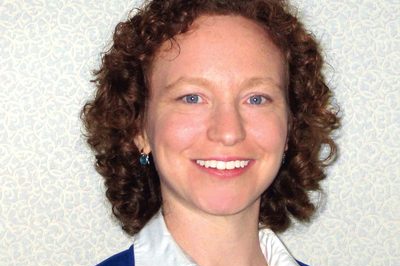I’ve been worried ever since I heard the allegation that Kevin Clash, the puppeteer behind “Sesame Street’s” Elmo, had had a relationship with a 16-year-old minor when Clash was 45. First, it was a serious charge. Second, although the accuser has since recanted and said he was in fact of age, I fear the incident may reduce the chance of “Sesame Street” including LGBT characters any time in the foreseeable future. I hope I’m wrong.
“Sesame Street” premiered in 1969, the same year as the Stonewall Riots that marked the start of the LGBT-rights movement. It was a television show for a new generation, not afraid to be broadly inclusive of multiple races, ethnicities, languages and physical abilities. Over the years, it has addressed sensitive topics such as coping with a parent’s military deployment to differences among children from Northern Ireland and the Middle East. The South African version even has an HIV-positive Muppet. But the show has avoided LGBT inclusion (Bert and Ernie’s rumored relationship notwithstanding).
In the 1982 segment, “We All Sing the Same Song,” a child sings, “I’ve got one daddy” and another responds, “I’ve got two.” Given the era, though, it remains unclear whether they were referring to gay dads or a divorced straight dad and a stepdad. In the 2006 episode where Gina the veterinarian adopts a child as a single mom, they address family diversity with the song, “Doing the Family Thing”: “Any group of people/Living together/And loving each other/Are doing the family thing. … ’Cause there’s all different leaves/On the family tree/And there’s all different types/Of families.” In between those verses are examples of different families — but LGBT-headed ones are absent.
Children’s television has made only one clear attempt at LGBT inclusion, and it was met with controversy. In the 2005 “Sugartime!” episode of PBS Kids’ “Postcards from Buster,” rabbit Buster visits Vermont. His tour guides are children from two different families, one of which is headed by two moms. President George W. Bush’s secretary of education Margaret Spellings asked producers to return all federal funding, and PBS pulled “Sugartime!” Boston’s WGBH, the producer, ran it anyway and offered it independently to PBS stations, 57 of which chose to broadcast it, although producer Jeanne Jordan said it still made second-season funding difficult.
The Department of Education has recently made laudable efforts to reduce bullying, including anti-LGBT bullying. They could add to these efforts by encouraging understanding and acceptance of all families, including LGBT families, even in the youngest grades. This could include funding children’s programs that show such families. Corporate sponsors of children’s television should do the same.
Here’s why this is necessary: Until we as a society stop thinking of openly LGBT people and families as something to be hidden from children, LGBT people will not achieve full equality, no matter how many legal and legislative gains we make. Our lives will continue to carry the whiff of impropriety — even though I can explain to my son how we created him and not mention sex at all, which is more than I can say for most straight parents. To have Clash come out publicly under the specter of pedophilia is horribly unfortunate, given the old myth that views all gay men in this light. And even though it turns out his relationship was legal, the nearly 30-year age difference between the two men still makes me uncomfortable. Clash has a daughter (from a previous marriage to a woman), who is only a few years younger than his erstwhile accuser. (For that matter, I also cringe when I think of actor Clint Eastwood and his wife, who is younger than his oldest child.)
But if Sesame Workshop, the nonprofit behind “Sesame Street,” were to turn away from LGBT inclusion because of Clash’s relationship, it would reinforce the myth. As Sesame Workshop said in a statement when Clash was first accused, “Elmo is bigger than any one person.” They should take that to heart and look beyond Clash to the two million children in the U.S. alone who are being raised by one million LGBT parents.
If Sesame Workshop’s mission is “to use the power of media to help children everywhere reach their highest potential,” then they should have openly LGBT characters on the Street we all love. Not only would children of LGBT parents benefit from seeing families like theirs, but children of non-LGBT parents would come to see LGBT people as part of our society, not as something to make fun of or whisper about. And children who are LGBT themselves would see models for what they could be.
I was 2 when “Sesame Street” premiered, and am a proud member of its first generation of viewers. It was the first show my own son watched. I have long seen it as the paragon of what children’s television should be. For today’s children, it should be LGBT-inclusive.
Dana Rudolph is the founder and publisher of Mombian (www.mombian.com), an award-winning blog and resource directory for LGBT parents.
